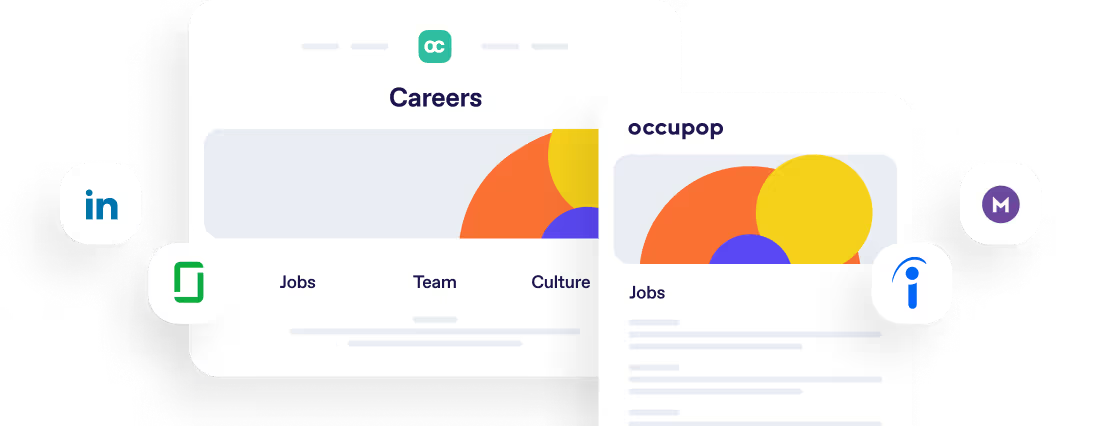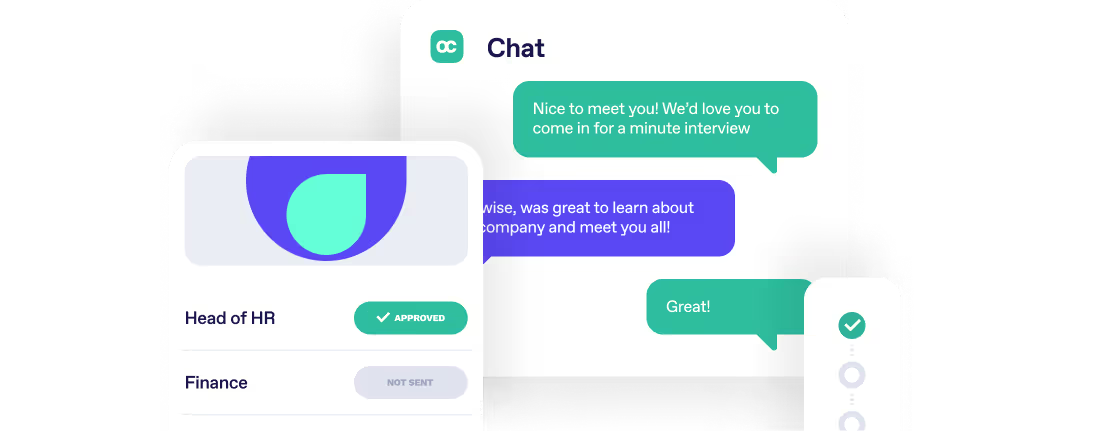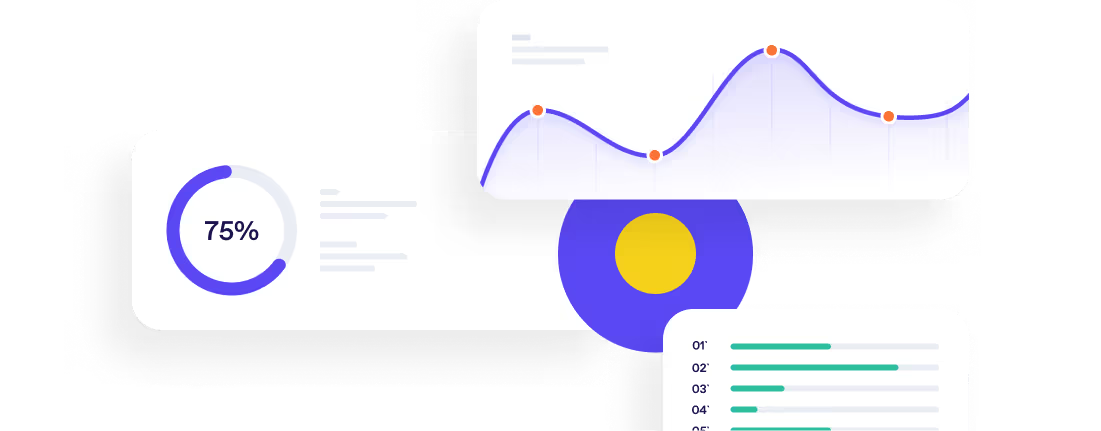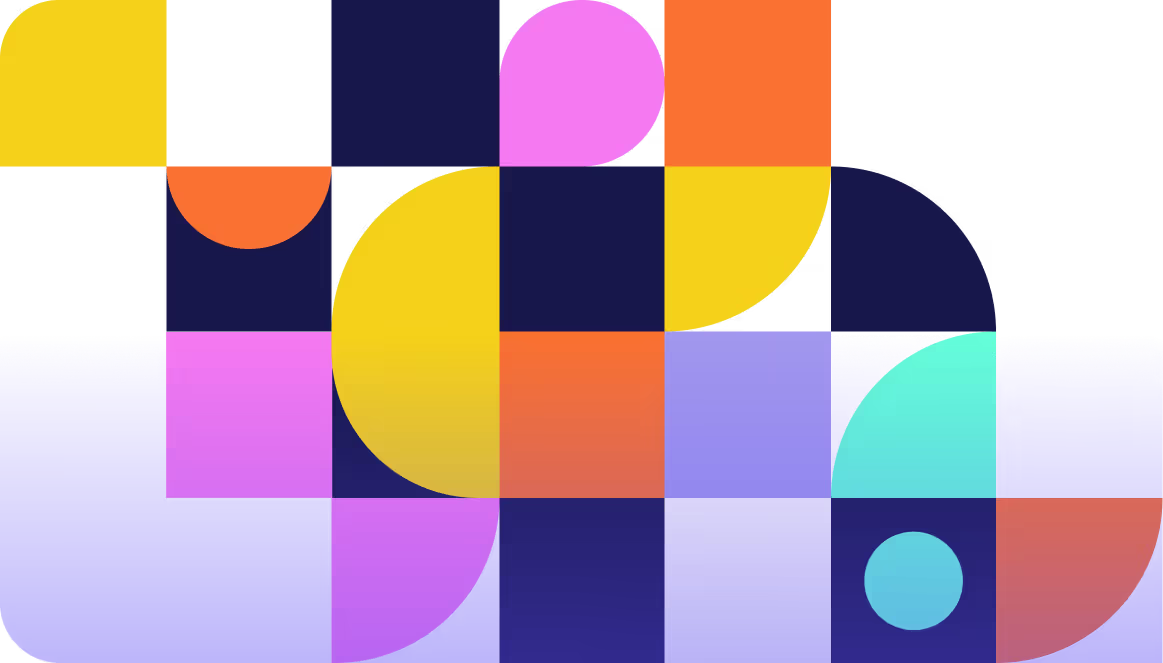Smart Hiring: How To Use AI Tools in Recruitment



With a staggering 33% of companies now leveraging AI and machine learning in their talent acquisition processes according to LinkedIn and an additional 41% planning to implement these technologies soon, according to Deloitte, the momentum behind AI in recruitment is undeniable. This comprehensive guide delves into the landscape of AI in recruitment, offering insights into its potent capabilities and how it can transform your hiring strategy.
Understanding AI Recruitment Tools
The integration of AI technologies, from applicant tracking systems (ATS) to advanced analytics platforms employing machine learning and natural language processing, is central to this transformation. These tools go beyond mere automation, aiming to enrich the recruitment process to become more efficient, effective, and fair.

In 2023, ChatGPT was the breakout product that made significant headway, especially in areas of great use to recruiters, such as candidate engagement. This is proving a key AI tool to both recruiters and hiring managers, who can use the technology to make job specifications more appealing, more easily customised candidate communication, personalise job-offer and rejection email templates, and so much more.
Check out this ChatGPT prompt library for recruitment, for some great ideas on prompts you can use to speed up your hiring process.
Understanding the vast landscape of AI recruitment tools reveals a diverse array of technologies designed to automate and optimise various stages of the hiring process. These tools not only streamline operations but also enhance the quality of recruitment outcomes, making them indispensable assets in the modern talent acquisition toolkit. AI recruitment tools range from chatbots that provide immediate responses to candidate inquiries to virtual assistants that streamline scheduling and communication. Automated screening software evaluates resumes against job requirements efficiently, while intelligent analytics platforms offer deep insights into recruitment patterns, enhancing strategy and decision-making.
Lets dive into some of the more recent developments in AI recruitment tools over the past 12 months.
Chatbots and Virtual Assistants
Chatbots such as Mya Systems and Paradox's Olivia exemplify the application of AI in providing initial candidate engagement. These virtual assistants can converse with candidates, answer their queries, and even schedule interviews, offering a responsive and interactive experience. This initial engagement is crucial as it sets the tone for the candidate's journey through the recruitment process. By automating these initial interactions, companies can ensure consistent communication and free up human recruiters to focus on more nuanced aspects of candidate engagement.

Resume Screening and Parsing
Advanced platforms like HireVue, Occupop and Textkernel transform the laborious task of resume screening and parsing into a swift, automated process. HireVue, for example, uses AI to assess resumes and video interviews, providing insights that go beyond what's on paper. Textkernel's technology, on the other hand, excels in extracting relevant information from resumes and matching candidates to job openings through semantic search technology. These tools significantly reduce the time spent on sifting through applications, enabling recruiters to quickly identify the most promising candidates.
Recruitment Marketing Automation
The automation of recruitment marketing is another area where AI tools shine. Solutions like JobSync and PandoLogic automate the distribution of job postings across various platforms, ensuring optimal visibility. They also analyse the performance of these postings, enabling recruiters to refine their strategies in real-time. This level of automation and analysis ensures that recruitment efforts are both efficient and effective, reaching the right candidates at the right time.
Predictive Analytics
Predictive analytics tools offered by companies like Visier and Predictive Index represent the cutting edge of AI in recruitment. These tools analyse patterns and trends in data to forecast future hiring needs, identify characteristics of top-performing employees, and predict which candidates are likely to succeed in specific roles. This predictive capability is invaluable for strategic workforce planning, helping companies stay ahead of talent needs and market dynamics.
Comprehensive Candidate Assessment
Beyond traditional assessments, AI recruitment tools also offer innovative ways to evaluate candidates. Video interviewing platforms such as Spark Hire and VidCruiter incorporate AI to analyse candidates' responses, body language, and communication skills, providing a deeper insight into their suitability for the role. Additionally, assessment gamification platforms like Pymetrics and HireVue's game-based assessments offer a unique approach to evaluating candidates' cognitive and emotional traits, making the selection process both engaging and insightful.

Automated Interview Scheduling
The logistical challenge of scheduling interviews is adeptly managed by AI tools such as Calendly and GoodTime. These solutions integrate with candidates' and recruiters' calendars to find optimal meeting times, significantly reducing administrative burden and improving the overall efficiency of the recruitment process.
In summary, AI recruitment tools encompass a wide range of technologies each designed to target specific stages of the hiring process. From engaging candidates with chatbots to using predictive analytics for strategic planning, these tools collectively enhance the recruitment process, making it more efficient, effective, and candidate-friendly. The breadth and depth of these technologies underscore the transformative impact AI is having on the way companies attract, select, and hire talent.
How AI Enhances Recruitment
AI enhances recruitment by automating repetitive tasks, such as sifting through resumes and pre-screening candidates. This allows recruiters to focus on more strategic aspects of their role, such as candidate engagement and interview preparation. Utilising AI in recruitment allows recruiters to streamline their processes, enhance the accuracy of candidate selection, minimise bias, and base their decisions on robust data. Furthermore, AI-driven analytics can help identify patterns and insights in the recruitment process, enabling data-led decision-making.
The adoption of AI in hiring is poised to transform the recruitment sector, boosting efficiency, precision, and the success rate of sourcing and securing the perfect candidates for organisations.
Benefits of AI in Job Recruitment Processes
Efficiency
The implementation of AI recruitment tools dramatically increases efficiency, automating scheduling, screening, and communication tasks. This allows recruiters to focus on more strategic aspects of their roles, such as candidate engagement and relationship building, demonstrating how to use AI appropriately and lawfully within the recruitment process.
Data-led Decisions
AI enables data-led decision-making by analysing vast amounts of information quickly and accurately. This capability is critical in addressing whether AI can replace recruiters, providing a nuanced understanding that while AI greatly enhances efficiency and decision-making, the human element remains irreplaceable in certain aspects of recruitment.

Implementing AI Tools in Recruitment
The integration of AI tools in recruitment processes involves critical steps such as training and monitoring, ensuring the technology is used effectively and continues to meet recruitment needs without compromising fairness or data privacy. This section highlights the importance of understanding AI's role in recruitment, aligning with legislative requirements and ethical considerations.
The Drawbacks of Using AI Tools in Recruitment
While AI tools offer numerous benefits, they also present challenges such as legislation compliance, data privacy concerns, and ensuring fairness in recruitment practices. These issues underline the importance of a balanced approach, where AI supplements human judgement without entirely replacing it.
Are AI Tools Superior to Human Recruiters?
This question is addressed by acknowledging that AI tools provide remarkable efficiencies and insights but are designed to complement rather than replace human recruiters. The synergistic relationship between AI tools and human recruiters is key to achieving a more efficient, equitable, and effective recruitment process.
A recent study by Linkedin revealed that 78% of candidates are more likely to apply for a position if their first point of contact is with a human recruiter (2022 Global Recruiting Trends Report), highlighting the indispensable role of recruiters in providing a personal touch.

Incorporating AI into your recruitment strategy can significantly improve your hiring process, with Occupop's simple recruitment software standing out as a prime example of technology streamlining hiring for SMB companies. The integration of AI and automation in recruitment, as detailed on Occupop's blog, represents a strategic approach to staying ahead in the competitive talent acquisition game.
The journey towards smart hiring with AI recruitment tools is an exciting one, promising a future where talent acquisition is not only more efficient and equitable but also more aligned with the evolving needs of the modern workforce. By embracing these technologies, companies can navigate the complexities of modern recruitment, ensuring they attract and retain the best talent in the years to come.
Leverage AI in Recruitment with Occupop
For organisations looking to harness the full potential of AI in their recruitment processes, Occupop offers a beautifully simple recruitment software solution that uses AI to score candidate CV’s based on your job description giving you an instant insight into which candidates are most relevant. Occupop's platform is designed to empower SMB companies to streamline their hiring processes, enhance candidate engagement, and make data-driven decisions, setting the foundation for a more efficient and effective recruitment strategy. Discover how Occupop can transform your recruitment process by exploring it with a free trial today.
INSERT-CTA
Summary Points
Smart Hiring: Navigating the Future with AI Recruitment Tools
- AI Integration in Recruitment: Artificial Intelligence (AI) tools are revolutionizing the recruitment process by enhancing efficiency, effectiveness, and fairness. These include applicant tracking systems (ATS), chatbots, virtual assistants, automated screening software, and analytics platforms using machine learning and natural language processing.
- Transformative Impact on Talent Acquisition: AI recruitment tools significantly transform talent acquisition by sourcing candidates more broadly, engaging applicants efficiently, and screening with unprecedented accuracy. Occupop, among other ATS platforms, has integrated AI to boost its capabilities.
- Enhanced Candidate Engagement: Innovations like ChatGPT are pivotal in candidate engagement, allowing for more appealing job specifications, customised communication, and personalized job offers or rejection emails. This fosters a more engaged and tailored recruitment experience.
- Industry-Specific AI Solutions: The recruitment landscape is enriched by specialized AI solutions targeting specific industry needs, such as HireEZ for healthcare and technology sectors, and Codility and HackerRank for technical skill assessment, showcasing the versatility and depth of AI applications in recruitment.
- Benefits of AI in Recruitment: AI tools automate repetitive tasks and enable data-led decision-making, increasing recruitment efficiency, reducing biases, and enhancing the accuracy of candidate selection. This results in a streamlined process that allows recruiters to focus on strategic aspects like candidate engagement and interview preparation.
- Balancing AI and Human Judgment: While AI offers remarkable efficiencies and insights in recruitment, it is designed to complement rather than replace human recruiters. The importance of human judgment remains critical in certain aspects of recruitment, ensuring a balanced and equitable hiring process.
Simple. Beautiful.
Recruitment Software.
HR updates sent straight to your inbox
You might also like...


Manage your entire hiring process simply, from engagement to management, hiring and onboarding







Simple. Beautiful.
Recruitment Software.
Recruitment Software.






